Links
A regularly updated collection of things I find worth reading, watching, or listening to. Subscribe via RSS.
-
Retirement Plan
№ 115A beautiful animated short film by John Kelly. I watched it earlier this week (thank you Simon!), and it just popped up in my head again, as I tried to read a few articles in an attempt to close a few tabs.
“When I retire, I’ll read the 35 years of saved articles on my reading list.”
-
Bad Dye Job
№ 114Putting Alan Dye in charge of user interface design was the one big mistake Jony Ive made as Apple’s Chief Design Officer. Dye had no background in user interface design — he came from a brand and print advertising background. Before joining Apple, he was design director for the fashion brand Kate Spade, and before that worked on branding for the ad agency Ogilvy.
It’s baffling this man was tasked with leading user interface design at Apple. Reads like a gigantic misstep, over on Daring Fireball.
-
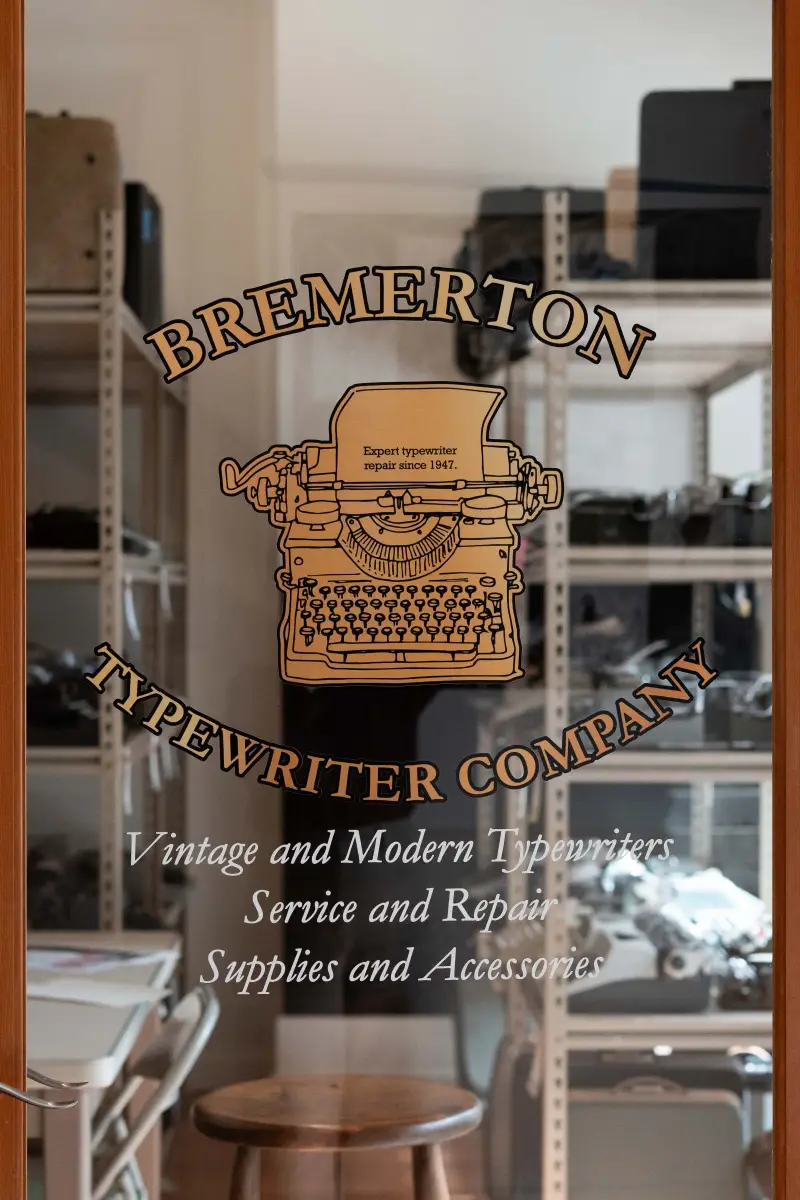
Bremerton Typewriter Company, photography by Ruth Fremson. Finding Mr. Montgomery’s shop required determination. No sign marked the building; no indication that inside, five floors up, a master craftsman was keeping alive skills that predated the computer age. You took an elevator that groaned. When the doors opened, you knew immediately you were in the right place: a 1916 Royal Model 10 typewriter stood guard outside an open door, and the air smelled like oil.
I love pieces like these. Showing the craft, the getting up every day and plugging away at something, a thing you so admire. This one in particular reminds me of a time I visited a fella somewhere in Amsterdam, who repaired record players. Thorens, to be specific, and specialised in the type I have at home. Very kind, very skilled.
My thanks to Thomas, for sharing it.
-
I don’t know why this happened at the office of The New York Times, but here we are. Erykah Badu hasn’t released an album in forever, and it doesn’t matter. Look at her aura as she floats into the room; you wouldn’t dare ask her why. The performance is just about flawless.
Currently, she’s celebrating the 25th anniversary of her landmark album Mama’s Gun. Perhaps someday soon, that album she made with The Alchemist will see the light of day.
-
NPR’s “Books We Love”
№ 111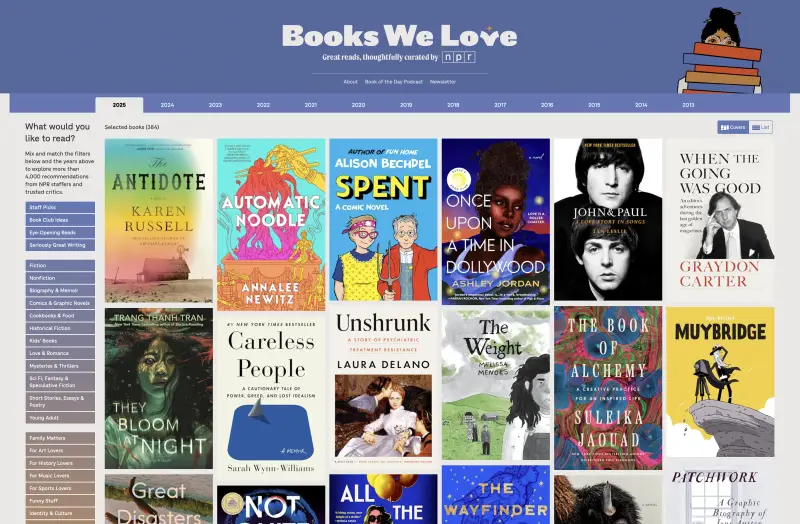
Great reads, thoughtfully curated by NPR. They’ve been doing this for a while, apparently, but I’d never come across it before; NPR added the year of 2025 to their Books We Love directory. You can use the sidebar on the left to filter for a combination of things (e.g. Staff Picks + Seriously Great Writing + Fiction), and then use the navigation up top to skip through the years.
I’m currently into short stories and essays, so this filter will be my go-to for now.
-
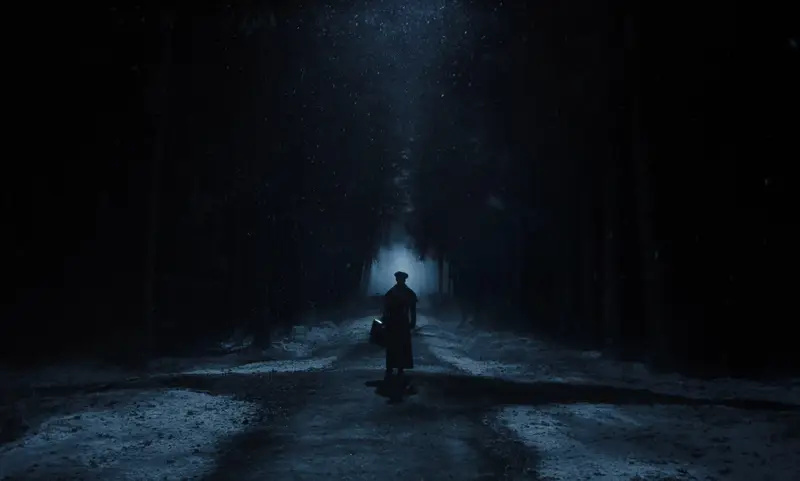
A still from Robert Eggers' Nosferatu (2024). Last week, I watched Robert Eggers' Nosferatu for the first time. I loved his work on The Witch and adored the madness of The Lighthouse, so was keen to see his take on this classic. And, it was breathtaking.
I watched it projected on a wall, sound blasting through a great installation, and the cinematography completely blew me away. The atmosphere they were able to create for this film is nothing short of astonishing. During a few scenes, I noticed I literally sat there with my mouth open. Visuals, audio, acting; everything’s spot-on.
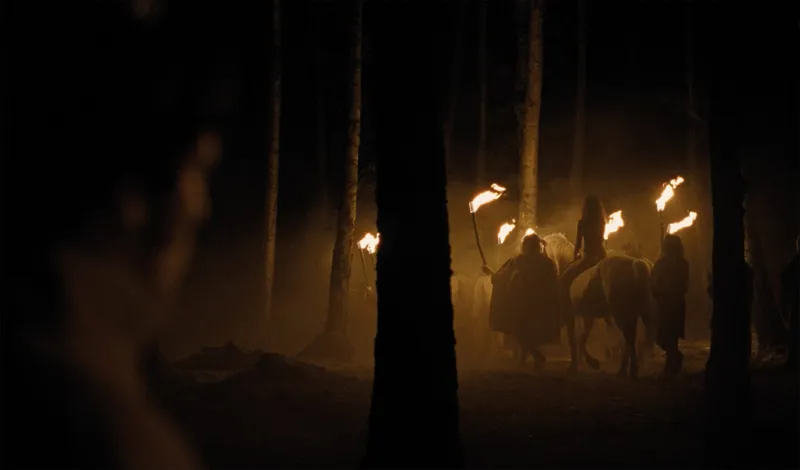
A still from Robert Eggers' Nosferatu (2024). CineD had a closer look at how they were able to get it done—especially the practical lighting, when seen onscreen, is magical.
-
The Quietus, revamped
№ 109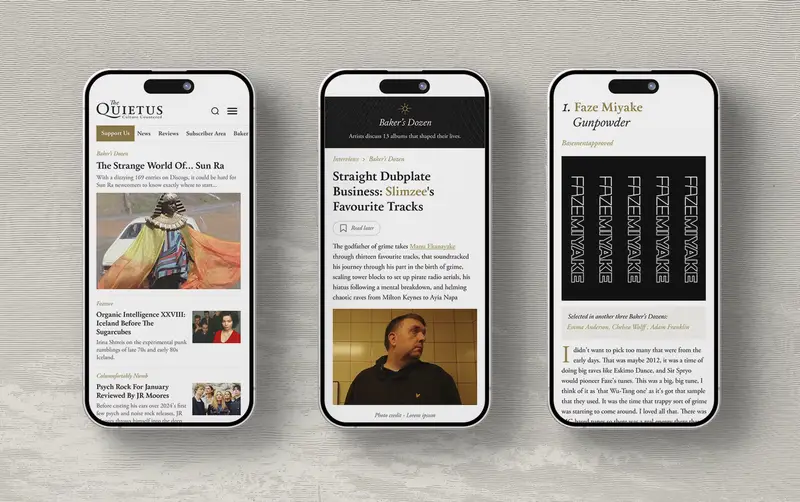
Earlier this year I noticed The Quietus got revamped, and I’ve been reading their work much more since then. The glow-up was done by 11:11, who took on the branding, design and development work.
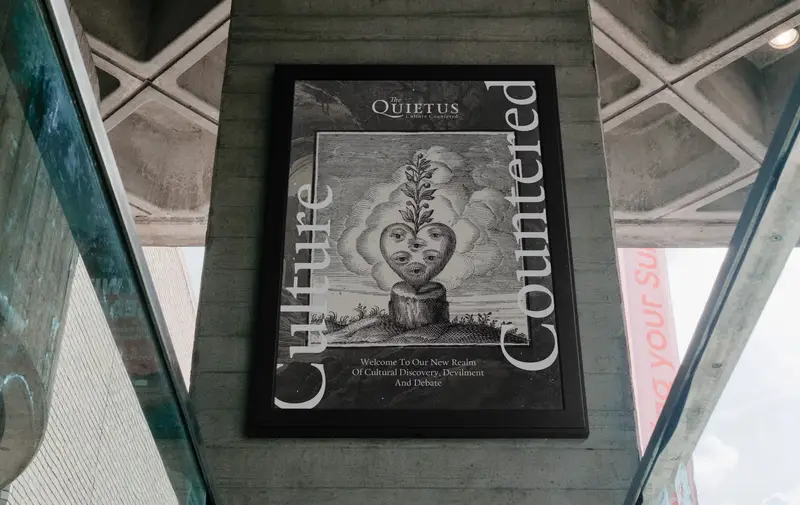
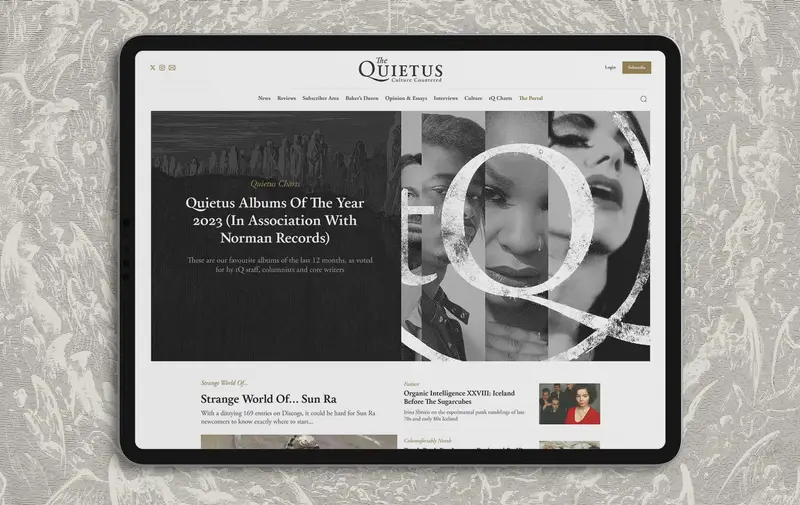
The revamped The Quietus, all images courtesy of 11:11. I appreciate the tactile nature of the work; the combination of the typography and illustrations makes the site feel ‘reader-first’, if that makes sense—as opposed to most similar sites, where the writing is buried beneath a pile of ads, waiting to be excavated.
-
Easy Puddings
№ 108
Cherry Almond Jell-O from “Quick Easy Jell-O Wonder Dishes”, 1930 My friend Iris, with whom I make TRANSCRIPT Magazine, has started a newsletter. It’s called Easy Puddings, and its first issue—On puddings, suns and other circles—is out now.
Easy Puddings is about what goes into making things, borrowing things, mixing things; about reading, writing, and other desk movements.
I chopped the e-mail up into three parts: 1) things I thought about at my desk, 2) things others have thought about at their desks and 3) a diptych as dessert. Easy.
Go ahead and subscribe, if you fancy it.
-
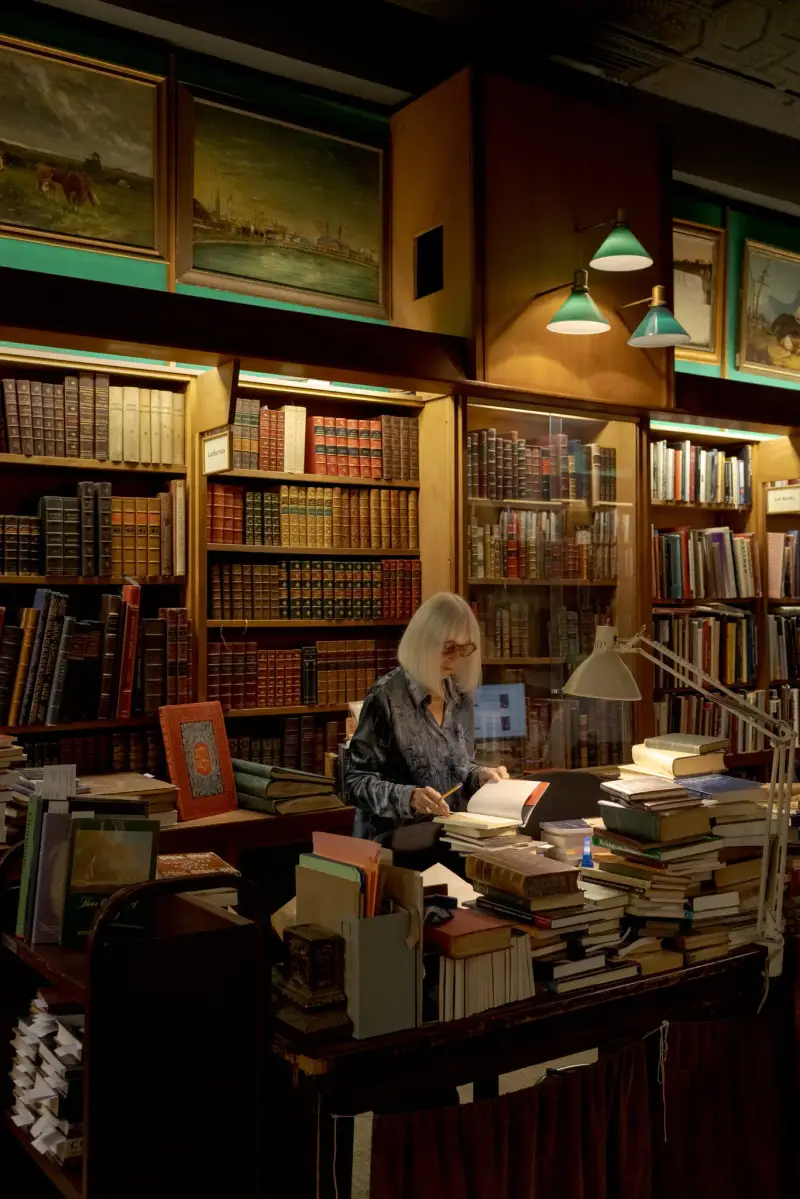
Photo by Anna Watts for The New York Times. Here’s a place I’d like to visit: Argosy Book Store in Midtown Manhattan celebrates its 100th anniversary this year. Surrounded by skyscrapers, it’s run by three sisters (90, 88 and 84 years old, respectively). Already a couple of decades under their belt, they took over from their father in 1991.
The sisters still go on book-buying trips around the city by cab, sometimes several times a day. Back at the shop, they spread the books over a broad, green table in the middle of the main browsing area on the first floor, just as their father taught them to do. They assess, catalog and shelve their finds, in between assisting customers.
On retiring, Ms. Cohen (84) says:
I’d like to, too, but working here is really interesting,” she said. “Every day, you don’t know who is going to walk in the door or what books are going to come in.
Book stores are fantastic places. Every day presents a chance to make someone’s day, and I dream of having one of my own, sometime.
-
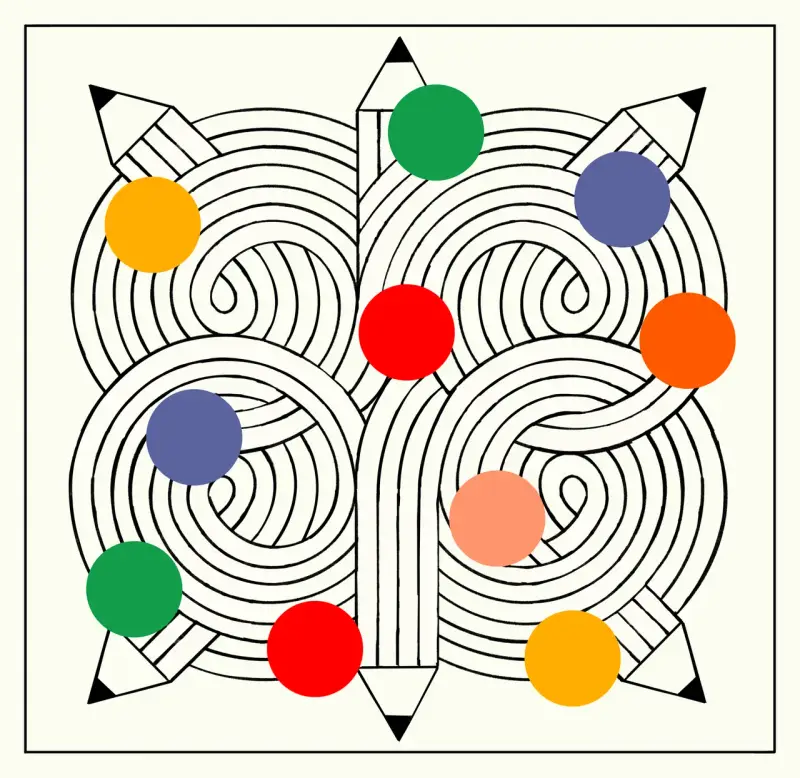
Illustration by Pierre Buttin. Zadie Smith, on essay writing for The New Yorker, making it sound easy (paywalled once more, I apologise). In-between the lines, her most puzzling admission, for me:
(I still write the opening and last lines of an essay first.)
Fascinating. The meandering form of an essay is difficult enough to master, let alone knowing where you’ll end it before you commence.
“Bob’s your uncle".